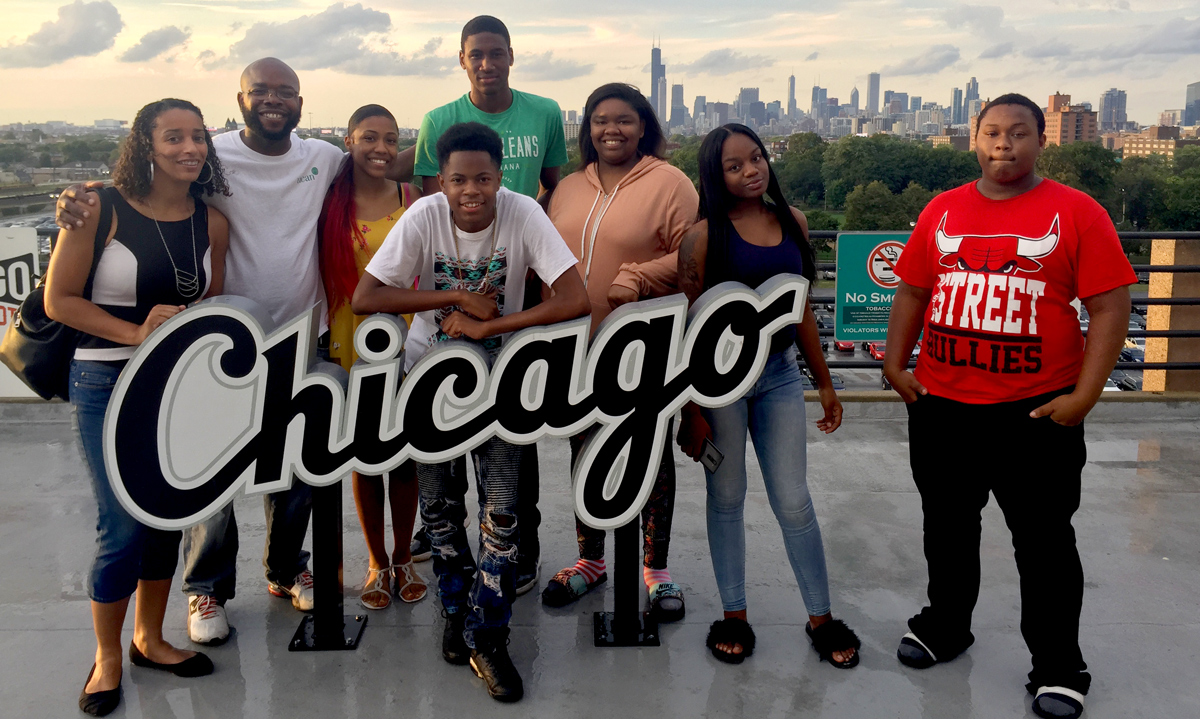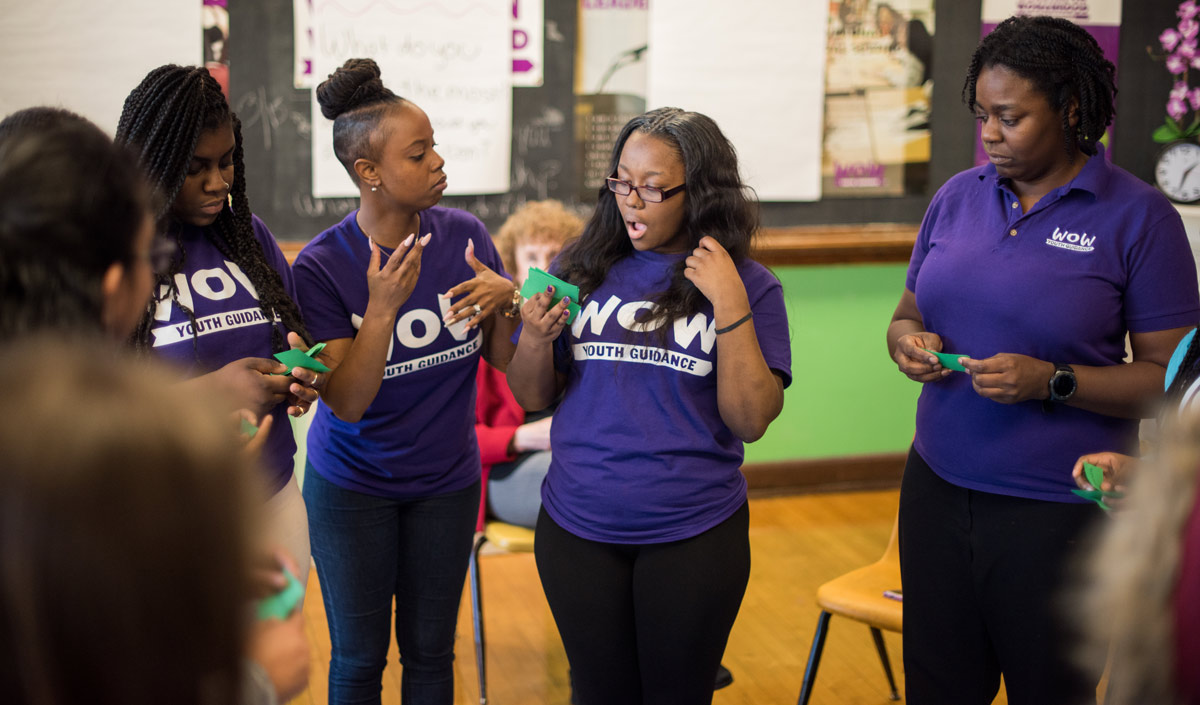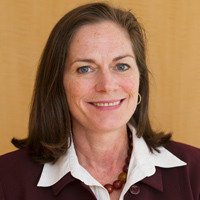Chicago Commitment Director Tara Magner shares how our investment in evaluating youth mentoring programs helped us identify effective programs that would benefit from additional support—from modernizing their technology to making their facilities more welcoming.
Chicagoans want our city to be safe for all who live and work here. We heard this message loud and clear as we sought advice from people all across the city in developing our grantmaking strategy.
We work to increase community safety through the Partnership for Safe and Peaceful Communities, a coalition of more than 30 local funders and foundations whose members support proven and promising approaches to reducing gun violence. The Partnership is aligning its resources around key strategies to increase police legitimacy and accountability, strengthens gun laws, and provides supportive services—including jobs—to individuals most affected by violence.

Youth and mentors explore Chicago as part of Uhlich Children's Advantage Network (UCAN) programming.
These are critical steps to making our communities safer. Yet, we know that more must be done to prevent violence from occurring in the first place. That is why, we have invested in evaluating several youth mentoring programs. We hoped to learn which programs are most effective in helping young people cope with stress and trauma, engage in school, pursue their artistic passions, and remain safe as they participate in all of those activities.
Based on the results of these evaluations, in 2017, we contacted five highly effective youth mentoring programs and asked them what kind of additional support might be helpful. They responded with a variety of requests, from expanding their programs, to making their facilities more welcoming to youth, to modernizing their technology. We were pleased to provide them with this support:
BBF Family Services in North Lawndale received $250,000 to upgrade technology so its youth computer courses have state-of-the-art hardware and software.
Children's Home and Aid Society received $180,000 to renovate its physical space in Englewood and to invest in staff training in youth mentoring, parent child therapy, and workforce development.
KLEO Community Family Life Center received $215,000 to repair and enhance facilities on Chicago's South Side; begin to offer science, technology, engineering, and mathematics (STEM) programming; and create a multi-media studio.
Uhlich Children's Advantage Network (UCAN) received $250,000 to expand youth programming and coordinate the Peace Hub, a collaboration between youth initiatives across North Lawndale.
Westside Health Authority received $250,000 to launch two new projects: the Institute for Business and Social Enterprise of Austin to train youth in civic, social, and commercial enterprises; and the Village Community Fellows Program to support youth-owned and -controlled businesses.

Photo courtesy of Youth Guidance
Working on Womanhood counselor Nora Lisa Malloy challenges her group to think critically during a collaborative exercise.
To continue learning how programs achieve success, we provided $1 million to the University of Chicago Crime Lab to evaluate Youth Guidance's Working on Womanhood program, which offers group counseling and clinical mentoring to young women. And, we awarded the National Opinion Research Center (NORC) $403,000 to evaluate six mentoring programs that show promise in reducing high-risk behaviors by youth. This project was developed with Get IN Chicago.
A MacArthur-supported evaluation conducted by NORC and released earlier this year showed that 82 percent of youth who participated in the study reported discussing personal issues with an adult inside the home. And more than two-thirds of young people in the study discussed issues with other adults, such as program mentors, counselors, or extended family members. The report uncovered a number of positive factors present in young people's lives and provided critical information that can be used to shape future services and strategies.
We believe that strengthening these organizations will allow them to improve or expand their high-performing youth mentoring programs. In conjunction with the strategies of the Partnership for Safe and Peaceful Communities, we hope that these coordinated efforts will help make our neighborhoods safer and allow our city's young people to thrive.




